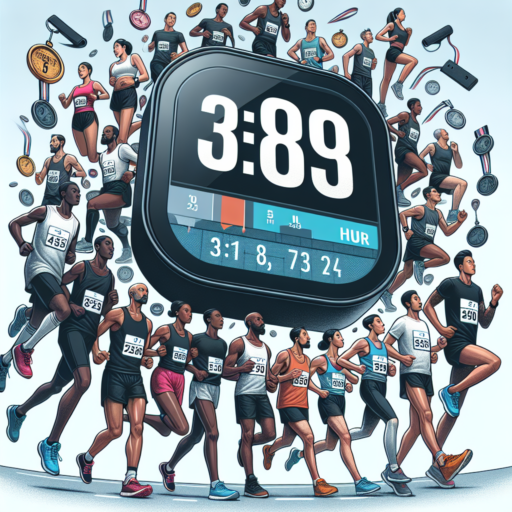How fast to run a half marathon in 3 hours?
To successfully complete a half marathon in 3 hours, setting the right pace is crucial. For this target time, you should aim for an average pace of approximately 13:44 minutes per mile or 8:33 minutes per kilometer. Maintaining a steady pace is key to managing your energy reserves throughout the race and avoiding burnout.
Adjusting your pace based on the terrain and your current fitness level can also improve your chances of hitting the 3-hour mark. It’s essential to start at a comfortable speed that feels manageable and then gradually increase your pace if you’re feeling strong as you approach the latter stages of the race. Incorporating interval training into your preparatory runs can significantly enhance your ability to maintain or even pick up speed as needed.
Listen to your body’s signals during the race to prevent pushing beyond your limits too early. Hydration and nutrition play a significant role in sustaining your energy levels, so make sure you have a strategy for intake during the run. By balancing speed, endurance training, and proper self-care, crossing the finish line of a half marathon in 3 hours is an achievable goal.
What is a 3 hour marathon pace?
Achieving a 3 hour marathon requires maintaining a consistent pace throughout the race. Specifically, hitting this prestigious timing involves running each mile in approximately 6 minutes and 52 seconds or running at a pace of about 4 minutes and 16 seconds per kilometer. This target pace is ambitious and demands not only a high level of endurance but also a strategic approach to race day and a well-structured training regime that prepares the body for the relentless demand of maintaining speed over distance.
Preparing for such a pace necessitates a focused training plan that includes a mix of long runs, speedwork, and recovery periods to build both the physical capability and mental toughness required. Runners aiming for a 3 hour marathon pace often commit to months of consistent training, gradually increasing their mileage and incorporating specific workouts that are designed to improve speed, efficiency, and endurance. This preparation is critical, as the ability to sustain the necessary pace throughout the entire marathon distance is what separates successful attempts from those falling short.
Additionally, factors like nutrition, hydration, and race day conditions (e.g., weather, course elevation) play significant roles in successfully maintaining a 3 hour marathon pace. Runners must pay close attention to their bodies’ needs throughout their training and on race day, ensuring they provide themselves with the right fuel and hydration to sustain their pace without hitting the dreaded «wall» that many marathoners face. Analyzing and possibly even simulating race day conditions during training can also provide invaluable insights into pacing strategies and help runners adapt their plans to meet their target time.
No se han encontrado productos.
What pace is a half marathon in 2 hours?
Running a half marathon in 2 hours is a common goal for many runners, aiming for a pace that challenges but is achievable with proper training. To meet this goal, understanding the pace required is crucial. The pace for completing a half marathon in 2 hours translates to an average speed of 9:09 minutes per mile or 5:41 minutes per kilometer. This pacing is a blend of endurance and speed, requiring runners to maintain a steady, moderate effort throughout the entire 13.1 miles (about 21 kilometers).
Breaking down the pace into manageable segments can help runners plan their race strategy more effectively. For instance, achieving consistent splits, maintaining a reliable pace from the start, and avoiding the temptation to run too fast too early are key components of reaching the half marathon finish line within the desired time frame. Training leading up to the race should incorporate interval workouts, long runs at target pace, and ample recovery to build the stamina and speed necessary for sustaining the 9:09-minute mile pace.
Nutrition and hydration strategies also play a significant role in achieving a 2-hour half marathon. Tailoring your fuel intake to support sustained energy levels without gastrointestinal discomfort is vital. Practicing with various energy gels, isotonic drinks, and hydration plans on longer training runs can pinpoint what works best for your body, ensuring you’re optimally fueled for race day while maintaining the targeted pace. Starting the hydration process days before the event and continuing throughout the race is key to avoiding cramps and fatigue, allowing you to maintain pace across all 13.1 miles.
How to get a sub-2 hour half marathon?
Achieving a sub-2 hour half marathon is a significant milestone for many runners, blending endurance, strategy, and dedicated preparation. Breaking the two-hour barrier requires not only physical readiness but also a mental fortitude and a well-structured training plan. Below are key strategies to help you cross this threshold, transforming your running goals into reality.
Develop a Consistent Training Schedule
Consistency is king when it comes to preparing for a sub-2 half marathon. A balanced training schedule that gradually increases in intensity will allow your body to adapt to the rigors of long-distance running without risking injury. Including varied workouts such as long runs, tempo runs, and interval training is essential. This approach ensures you’re developing both aerobic and anaerobic capacities, crucial for maintaining a pace of 9:09 per mile or faster, the pace necessary to finish within two hours.
Incorporate Strength and Flexibility Training
While running is at the heart of your preparation, integrating strength and flexibility training into your routine can greatly improve your performance and reduce the risk of injury. Focus on core, leg, and hip strength exercises twice a week, alongside daily flexibility routines. This not only enhances your efficiency as a runner but also builds resilience against the physical demands of long-distance running.
Nutrition and Hydration Strategies
Optimizing your nutrition and hydration is an often-underestimated aspect of preparing for a sub-2 half marathon. Fueling your body with the right balance of carbohydrates, proteins, and fats during training, and especially in the days leading up to the race, can dramatically impact your energy levels and performance. Equally, mastering your hydration strategy, including understanding when and what to drink during runs, is crucial to avoid cramping and fatigue. Balancing electrolyte intake during longer training sessions and the race itself can maintain your pace without hitting the dreaded «wall.»




